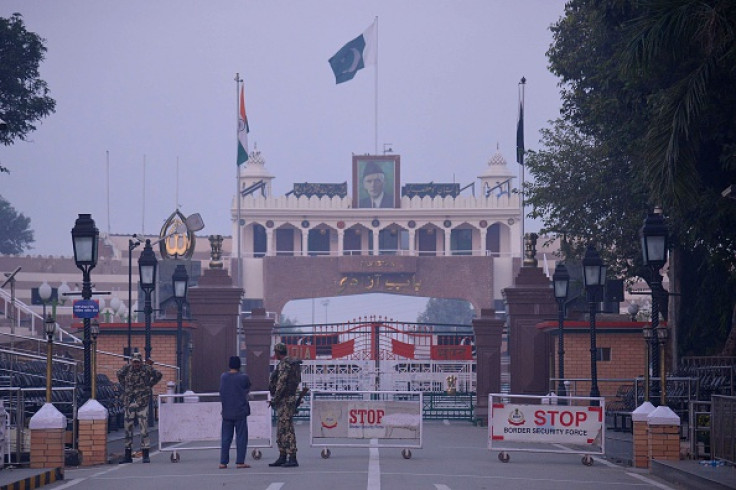Wagah Border Blast: Are Al-Qaeda and Isis Working Together on Building a South Asian Caliphate?

As terror groups, like Jundallah and Jamaat-ul-Ahrar, wrestle to claim responsibility over Sunday's suicide attack at the Pakistan-India Wagah border, analysts point towards a deeper link between al-Qaeda and Islamic State (Isis) militant groups that might be fuelling a broader terrorism agenda to build a South Asian caliphate.
Al Qaeda simply wants to strengthen its presence in a part of the world where it believes it has lost influence in recent years. With foreign troops leaving Afghanistan, numerous militants fighting foreign forces in that country – such as Lashkar-e-Taiba – will be in search of a new target.
"Al Qaeda simply wants to strengthen its presence in a part of the world where it believes it has lost influence in recent years. With foreign troops leaving Afghanistan, numerous militants fighting foreign forces in that country – such as Lashkar-e-Taiba – will be in search of a new target," said Michael Kugelman, a Senior Program Associate for South Asia at the Woodrow Wilson International Center for Scholars in Washington.
The Wagah border tragedy highlights a "geographic shift in South Asian militancy," says Kugelman.
Quite recently, Al-Qaeda's chief Ayman al-Zawahiri had announced that the global extremist miltant group is launching a new sub-continent branch to merge the 'artificial borders' that are presently dividing Muslim populations in the region.
"This entity was not established today but is the fruit of a blessed effort of more than two years to gather the mujahedeen in the sub-continent into a single entity," said al-Zawahiri, reported Dawn News.
Al-Qaeda's chief had promised to take the fight to India, and so it appears he did.
Tehreek-i-Taliban Pakistan (TTP) splinter groups claim responsibility
Several Tehreek-i-Taliban Pakistan (TTP) splinter groups have claimed responsibility for the suicide attack at the Wagah border that killed at least 61 people, including 10 women, eight children and three security personnel on Sunday evening.
Jamaat-ul-Ahrar, splinter group of Tehreek-i-Taliban Pakistan (TTP), claimed responsibility for the Wagah border attack with spokesman Ehsanullah Ehsan speaking to Dawn News from Afghanistan:
"We will continue such attacks in the future. Some other groups have claimed responsibility of this attack, but these claims are baseless. We will soon release the video of this attack. This attack is revenge for the killing of innocent people in North Waziristan."
Another militant group, outlawed TTP splinter group Jundullah, with close ties to Al-Qaeda and the Taliban, had earlier claimed responsibility with spokesman Ahmed Marwat alleging the attack was a reaction to Pakistan military's Zarb-e-Azb operation in North Waziristan.
Though Pakistan's security situation has remained calm following the military offensive in North Waziristan, the stage is being set for new and "more ferocious sources of anti-state terror," insists Kugelman.
The militant group Jandullah, whose primary agenda lies in fighting for Sunni Muslims, shares the same ideologies as IS.
It is yet uncertain if the Wagah border attack is a warm up to IS establishing a South Asian caliphate with the help of local militant groups, like Jundullah, or is it an al-Qaeda move to regain power as the IS propaganda extends its reach in South Asia.
"Audacious attacks such as the one at Wagah are carried out to provide oxygen for the cadres. In particular, the latest attack will appeal to the Indian Mujahideen, which is attempting to break away from its homegrown image and contribute to the global jihad cause," says an analyst on Rediff News.
© Copyright IBTimes 2024. All rights reserved.







